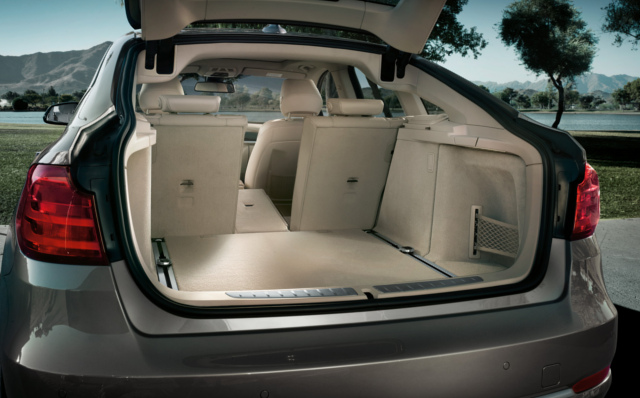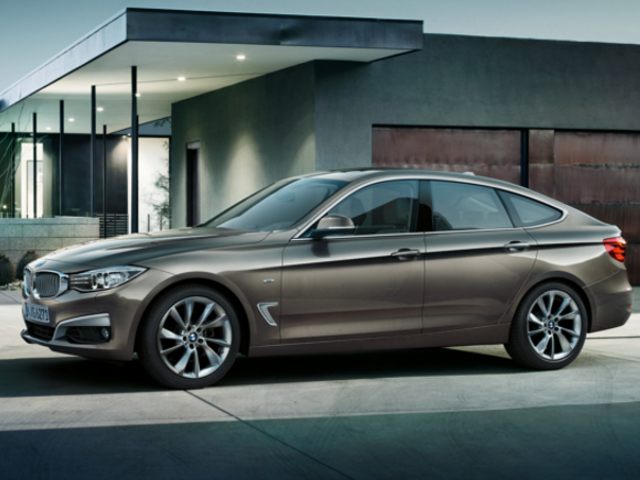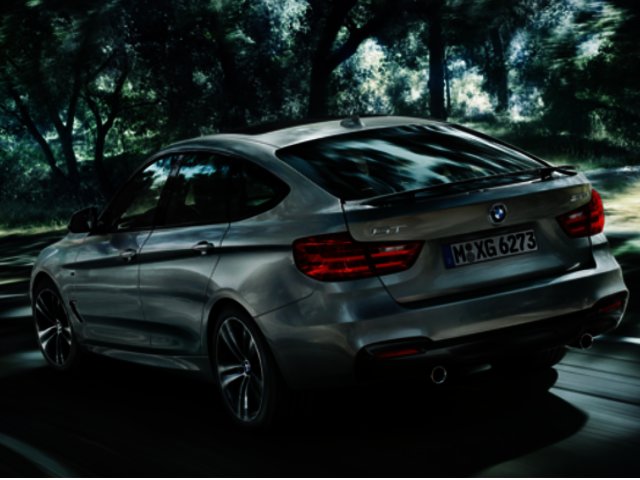With the GT version of the popular 3-Series, BMW is trying to provide 3-Series buyers with more interior- and luggage space. Does the Kim Kardashian-rivalling derriere of the GT weigh down its driving appeal?
The 3-Series GT is BMW’s second attempt at delivering a vehicle that delivers a best-of-both driving experience. This, as it is tasked with combining the dynamic performance of the standard 3-Series with the practicality of the 3-Series Touring (a station wagon version that is not available locally). Despite boasting the famous BMW badge, this was not a review we were looking forward to given the fact that the company’s first attempt at this tricky combination - the 5-Series GT - was not the belle of BMW’s car design ball.
This all changed with the arrival of the 320i GT at our offices, as we quickly discovered that the 3-Series GT managed to shake off the ugly duckling image of its sibling. The styling package as a whole is better executed and compact than the oddly shaped 5-Series GT. With the 3-Series GT buyers simply end up with a bigger 3-Series.
In fact, the 320i GT is 81 mm loftier, 16 mm wider and 200 mm longer than the standard 3-Series, translating to more head- and legroom for rear passengers. Backseat occupants actually get more space than they have access to in the 5-Series, and the boot also swallows 25 more litres luggage space compared to the station wagon iteration of the 3-Series.
A fly in the styling ointment is the fact that the mammoth sloping rear windscreen does not feature a wiper, meaning that you can’t see any approaching traffic during thunderstorms.

If you want a BMW 3-Series but find yourself wishing for a bigger boot and more space for rear passengers, then the 320i GT might be the car for you.
It’s all fun and games, ‘til the 3-Series loses its mojo
Practicality is then clearly king in this executive saloon. But does this mean that the driving dynamics - the reason why BMW sell more 3-Series vehicles than Audi does A4s or Mercedes-Benz can C-class cars - is a secondary concern?
This question can be addressed by peeking under the bonnet of the 320i GT where you’ll find a 2-litre four-cylinder engine that churns out 135 kW at 5 000 RPM and 270 Nm of torque between 1250 and 4500 RPM. This is enough to call up 100 km/h on the GT’s fancy head-up display (HUD) in less than 8 seconds, up to a catch-me-if-you-can 230 km/h.
The lively powerplant shows no regard for the added heft of the GT in a straight line then, but unfortunately the same is not true in the twisties. Thanks to being 155 kg heavier than a normal 3-Series, the 2-litre engine of this entry-level GT feels way too underpowered for this bulky vehicle as it’s nowhere near as sharp as its run-of-the-mill series stablemates.
You can counter this a bit by opting for the Sport or Sport+ modes via the Driving Experience Control button next to the gear lever. Amongst other features this results in the throttle- and steering response sharpening, for a sportier driving experience. What you cannot counter though is the hit your average fuel consumption takes whilst driving in these modes, as we managed 9.3 litres per 100 km, worlds apart from the claimed 6.7 litres per 100 km combined-cycle (town and highway driving usage). Driving around in Eco Pro mode did drop the average consumption to around 8.5 litres per 100 km, but this mode takes all the fun out of being in the driver’s seat of a BMW.

The 320i offers lots of practicality within a somewhat stylish package, but we just wished for a bit more grunt from under the bonnet.
It all comes down to the options
At the end of the day, the 320i GT is a super-sized 3-Series for buyers prioritising interior space and a bigger boot, above driving dynamics and the best possible fuel efficiency. Luckily, the 3 GT is also much easier on the eye than that ungainly eyesore that was the 5 GT.
The cost of sliding into the driver’s seat of the most practical and spacious of all 3-Series vehicles comes to R439 000 for the entry-level 320i guise with the smooth as silk 8-speed Steptronic gearbox. However, our test model came standard with a generous amount of kit including the reversing camera, Bluetooth hands-free calling, BMW turn-by-turn voice-guided satellite navigation system and HUD. The latter showcases projected info such as your current speed, speed limit on the road you're driving and if you are running critically low on petrol for instance, on the windscreen directly in your field of vision.
Attaining this equipment level means forking out a fortune for a large assortment of additional options such as a R9 800 Harman Kardon surround sound system, and R10 400 for the parking package (parking sensors and cameras). The eye-watering price of our test unit came to R649 965.
All we can say is skip the tech fluff and get the M Sport package (R23 100), on a more powerful model like the range topping (R610 000) 335i GT, and you’ll have the perfect blend of practicality and performance. The 335i GT packs a 3 litre V6 that delivers 225 kW and 400 Nm for a 0-100 km/h sprint time of 5.4 seconds and top speed of 250 km/h.




